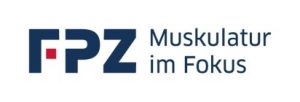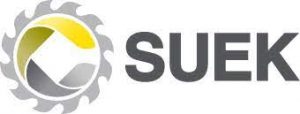Company Prevention Solution
Protecting the health of employees
Due to the global ever-aging population trend and an unhealthy lifestyle, the number of employees with musculoskeletal complaints is increasing, and the need for preventive actions for employees is growing. The DAVID Prevention Solution is an interactive platform to guide and train employees of both large and small companies in various industries.
Company prevention providers and rehabilitation clinics can expand their businesses with remote prevention units without space and distance constraints. The DAVID Prevention equipment is installed on the premises of the client company. Health evaluations as well as mobility and strength measurements are done for employees. Then, individual training programs are created based on the results.
Watch the video
An excellent and engaged team is essential
People feel better and perform better if they can participate at work and in society. It is therefore essential to pick up on the signals that things are not going as well as they should. Nothing is as annoying as an unexpected failure.
With the DAVID Prevention Solution, healthcare professionals can build strong, engaged teams in which health and safety are at the forefront.
Complete health evaluations
Individualized programs require a thorough understanding of the employees’ background, present condition, and physical capacity. Standard evaluation protocol includes a validated questionnaire, patient background evaluation, pain profiles, and a physical assessment. Physical therapy evaluation assesses posture, functional deficiencies and limitations. Device-based tests include strength and mobility in all movement planes.
The results are recorded in a database, and an illustrative body profile can be printed out comparing the person’s test results to normative reference data. Evaluations and testing are done in pre-, mid-, and post-treatment, providing comprehensive outcome reports with objective data. When a patient receives a graphical report with objective data that shows their progress it adds motivation and a stronger desire to take charge of their own health.
Individualized treatment programs
The overall goal of a successful treatment program is that pain decreases, work absenteeism decreases and quality of life increases. To achieve this goal, the active therapy must be progressive and in line with the individual’s ability to adapt to the exercise program.
The exercise program can easily be organized around any workday flow. Either on their own time or during their designated slot, the employee leaves their workstation and goes to the prevention clinic. Here they are able to complete their individualized exercise program with the support of a healthcare professional. A treatment session can take as little as 15 minutes yet still have a positive impact on the person’s health.
The treatment is always based on individual assessment. The program’s progression follows the employees’ subjective evaluation of the experienced resistance and the pain indicators. When the person completes the exercise, the device asks how difficult the person perceived the exercise. With this information, the software automatically adjusts weight resistance for the next exercise session so that the treatment progresses in line with the person’s own ability.
Absenteeism reduction program
 Integrated care for back pain: scientific documentation 2006-2008.
Integrated care for back pain: scientific documentation 2006-2008.
Objective
To reduce the high costs of back pain patients through the back training program “integrated functional back pain therapy” implemented according to the FPZ (Research and Prevention Centre / Forschungs- und Präventionszentrum) concept.
Methods
Using the criterion: “spinal column syndrome with major symptoms”, 400 insured parties from the period 2001–2003 were analyzed from which 94 entered the treatment program.
The intervention group underwent 24 training session with David Spine Concept (with initial and outcome analysis).
The services rendered were subjected to a comparative test according to business management criteria with return on investment (ROI).
Outcome
Savings in the intervention group were 5544 EUR on average. Calculated over the period of 4 years from 2000-2003, savings were 1390 EUR per patient per year.
When divided into specific cost criteria, results where more diversified. Between the years 2000-2003 the costs for the insurance company per patient were 17.489,78 EUR in the control group and 11.647,24 EUR in the intervention group. The costs for the back training with 1:1 therapist: patient ratio were 1247,55 EURO.
This shows that over the period of 4 years for total costs a ROI of 4,7:1 was achieved. This means that for every EUR invested into active back training a benefit of 4,7 EUR compared to the control group could be achieved.
Company prevention with coal mine workers
Objective
To reduce sick leave cases using active David Spine Concept rehabilitation program during a 9-month training period.
Methods
A 9-month exercise training program using David Spine Concept. Participants included in the analyses had pain and discomfort in back or neck area. Participants’ age ranged from 20 to 64 years (62% male), of the participants 27 % were engineers and 73 % did physical labor work.
Outcome
A 34.98% reduction in sick leave cases for the first 9 months of 2014 compared to the same period in 2011.
Increased the maximum strength of the muscles of the spine and the mobility of the spine in 94% of patients. Significantly reduced pain in the back and neck in 87% of patients. All patients reported improvement of exercise tolerance in production and everyday life.
Company prevention program – Mercedes-Benz factory
Objective
In 2009 there was a need to protect the workers against back problems. Reasons included:
- Low back pain was the most common individual diagnosis and caused the most economic impact and resource consumption in the company
- 70% of the workers had episodes of back pain at work
- Back pain was the most common cause for chronic work incapacity
- Work is associated to assembly chains
- 85% of the injuries were due to bad ergonomics
- The workers were getting older
Methods
Rehabilitation program:
- In Company Training (during work time)
- Individual programs for each worker (with progression)
- Initial test + 16 visits (1 per week) +Outcome test
- Flexion and extension devices (110 + 130)
- 10-15 min/visit
Outcome
Work absenteeism:
- Sick days (due to back problems) were reduced by 78%
- Number of sick employees due to back problems was reduced by 70%
- Visits to the doctor (due to back problems) were reduced by 29%
Workers’ own perceptions:
- 91% of the workers thought the program was effective against back pain
- 95% of the workers would like to continue doing the program
- 87% of the workers would recommend the program to their colleagues
”In today’s economic climate, companies in all sectors must ensure that their productivity is at an optimum level in addressing the issues relating to worker health generally and back-related health in particular.”
References
DAVID Prevention Programs promotes employee health in a number of industries including the automotive sector, manufacturing, and military associations. Check out our references for more information.
 Hong Kong
Hong Kong 


























